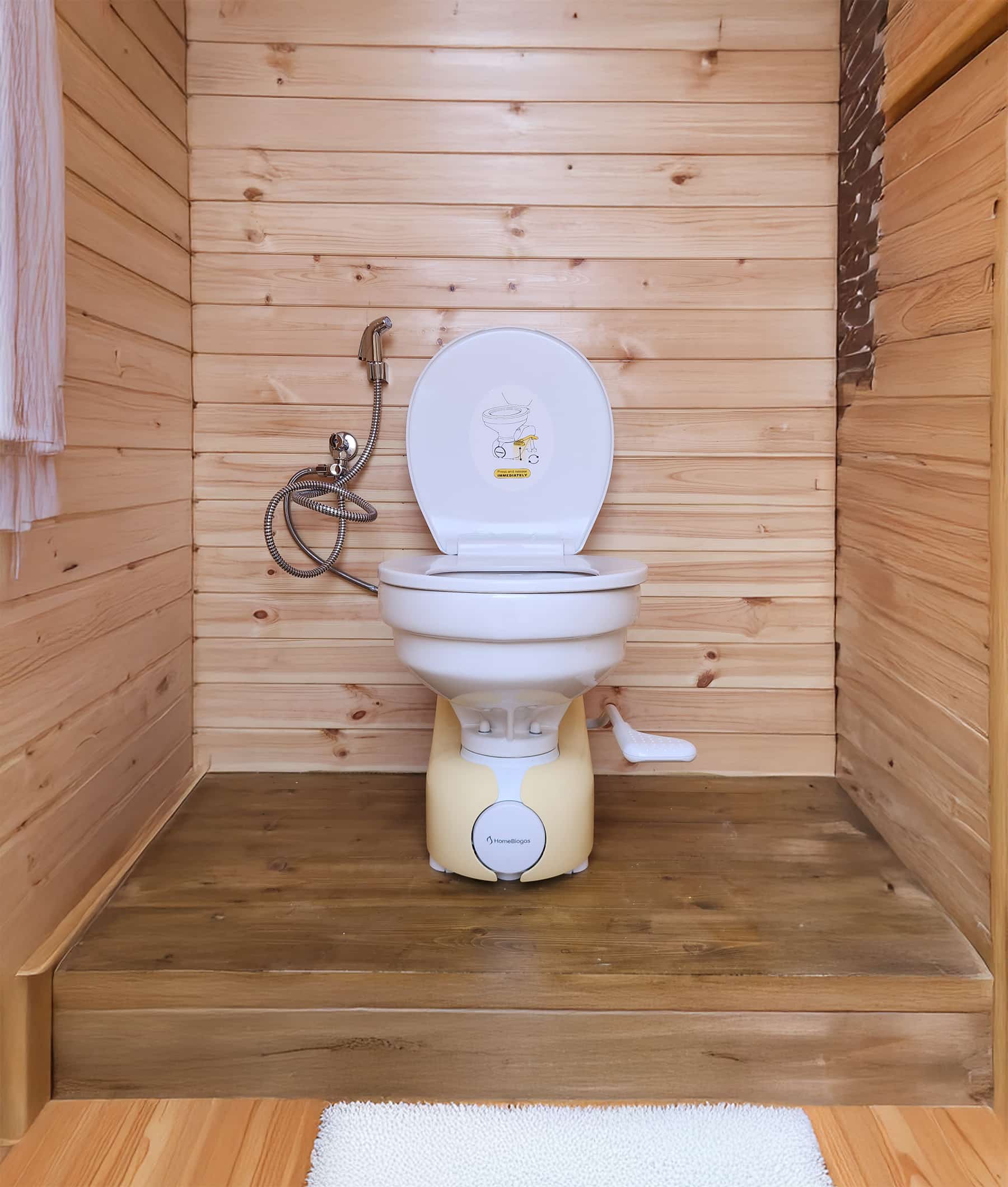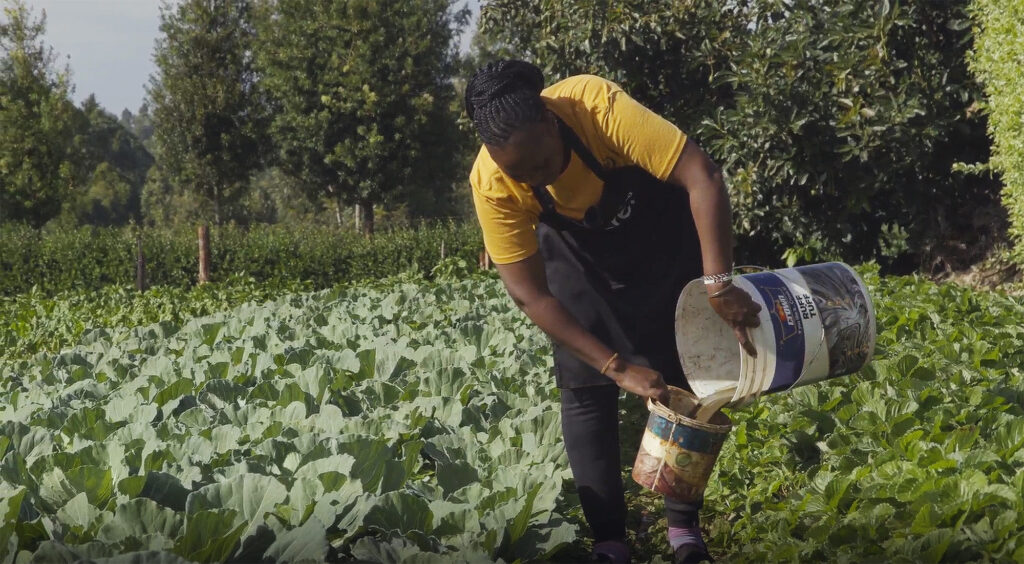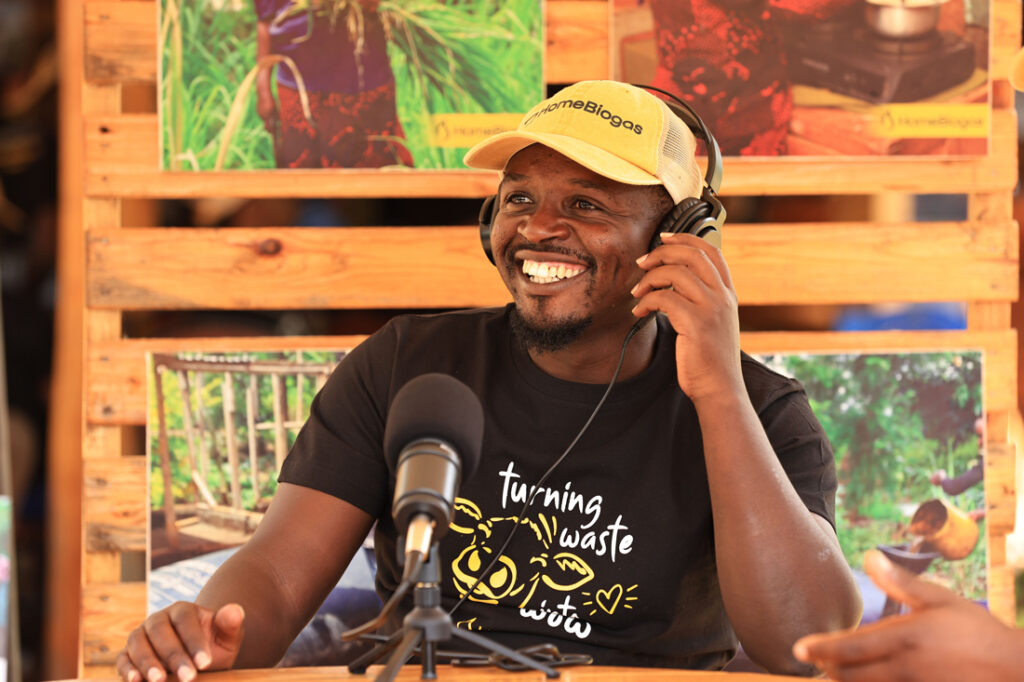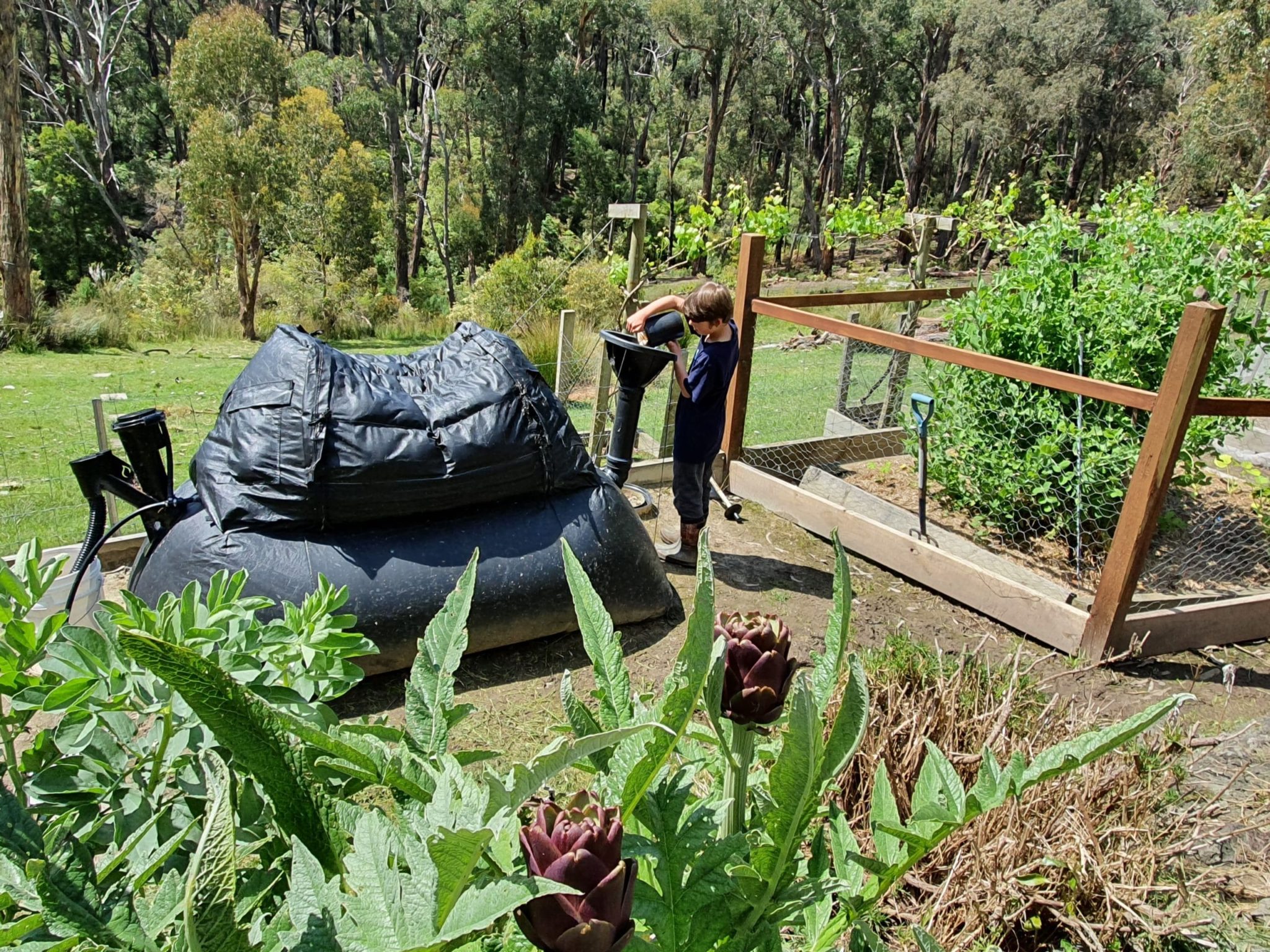
Meet the Lowe Family!
Rachel lives in Victoria, Australia, in the beautiful Dandenong Ranges with her husband Russell and their two children, Ryan and Rhys. The family try to be as self-sufficient as possible on their 5 acres of land, having installed solar panels and a 40,000 litre water tank at home. They grow a fruit and vegetable garden and have a small flock of livestock which includes sheep, chickens, quail and ducks. In addition to enjoying cooking by wood and solar energy, over the past year Rachel and Russell have added cooking by biogas to their routine.
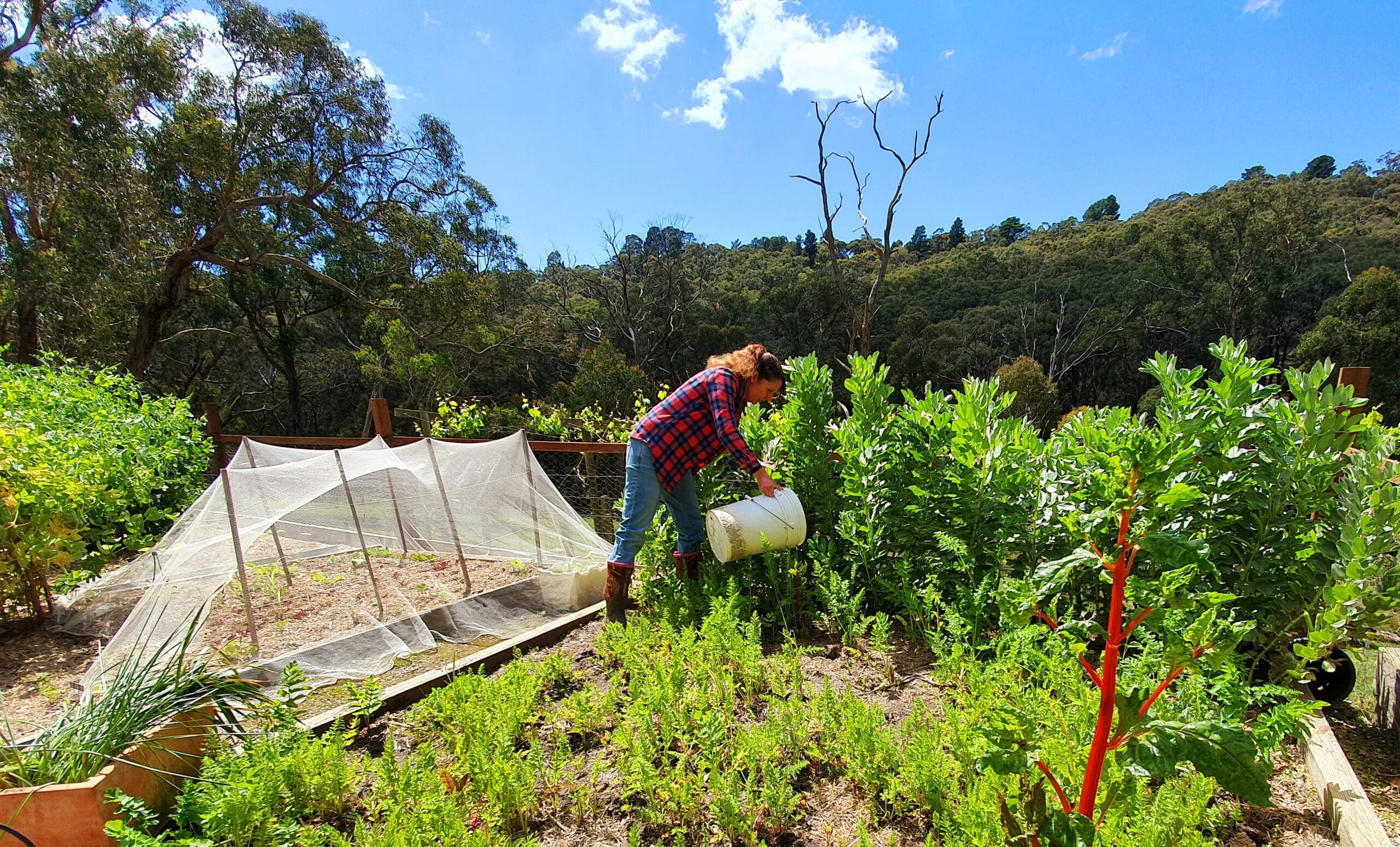
It’s all about the Food
We weren’t surprised to hear that a big part of the Lowe Family’s self-sufficient lifestyle revolves around food. We know from our own experience that food is what brings people together and especially for children, eating something homegrown can feel almost magical. Rachel has always loved growing fresh food to eat and marvels at how the taste of a freshly picked juicy peach, crunchy apple, sweet strawberry or tomato from the vine are incredibly different and immeasurably better than what can be bought from the supermarket. She takes pleasure in seeing her children enjoy these experiences with their home grown food.
“I love that my HomeBiogas supports being end-to-end self-sufficient in our food-cycle,” explains Rachel. “We fertilize the plants with the liquid fertilizer, pick the fresh food, cook it on our HomeBiogas burner and then if there is any food waste it goes back into the HomeBiogas to continue the cycle.”
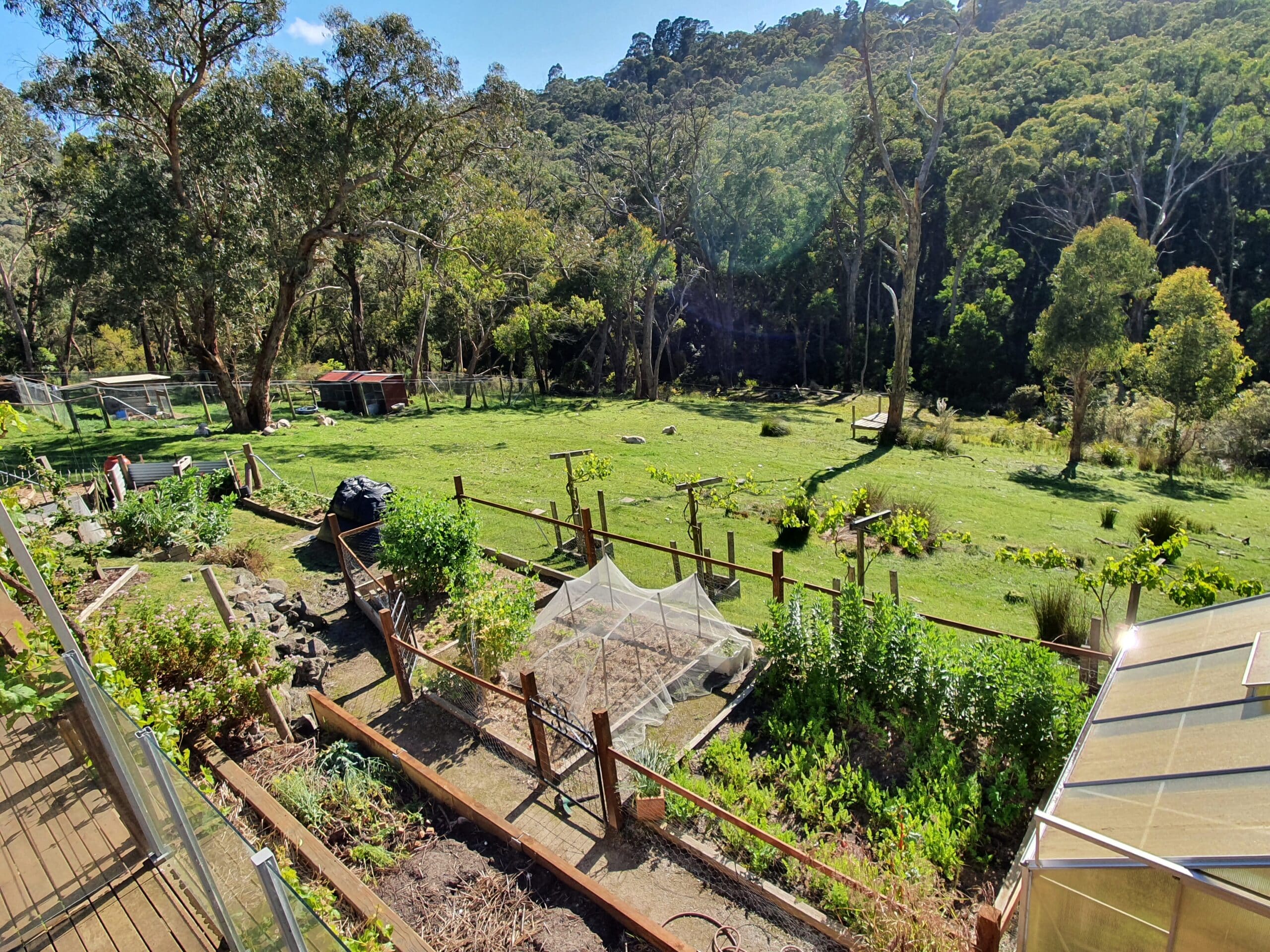
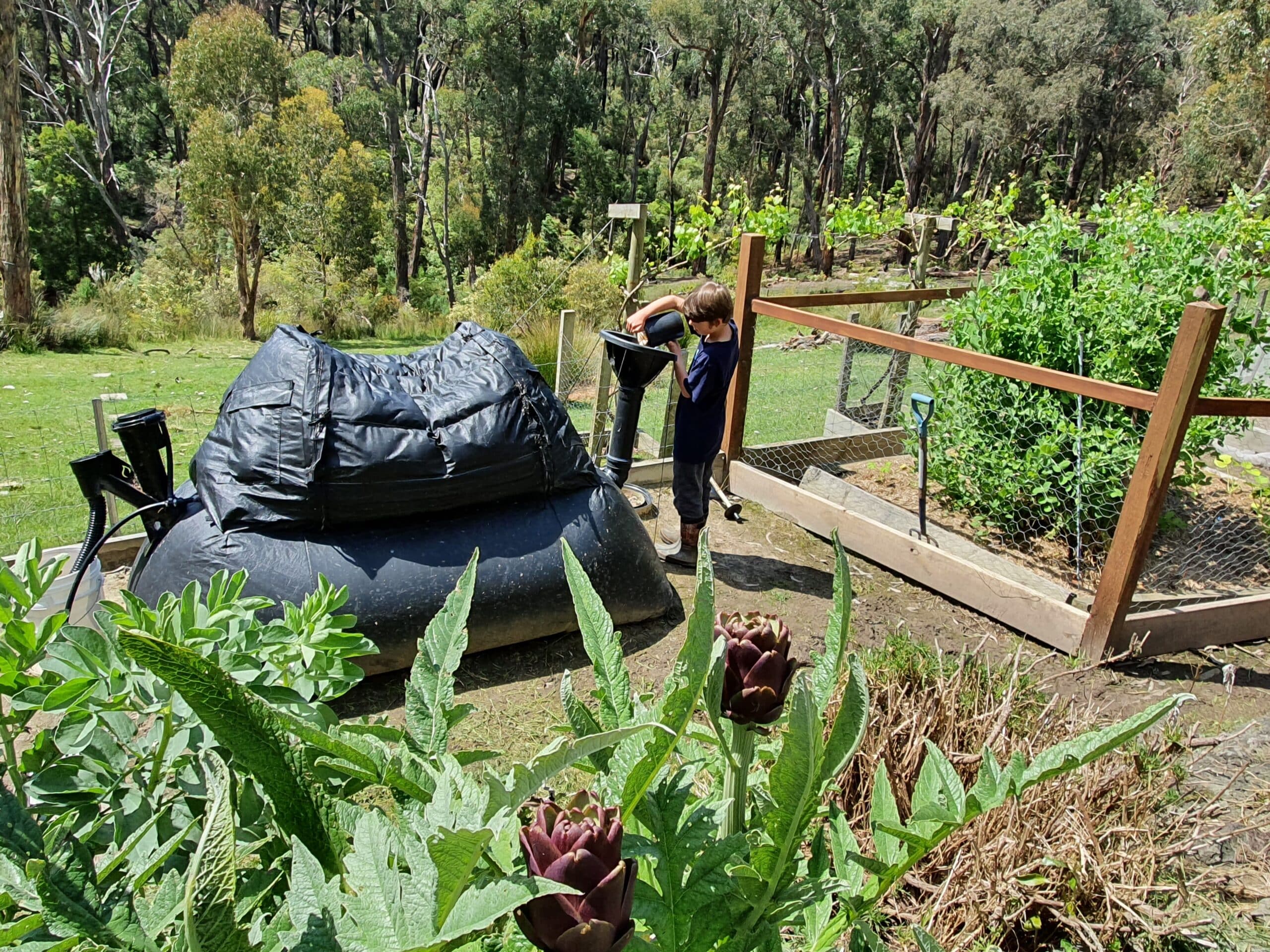
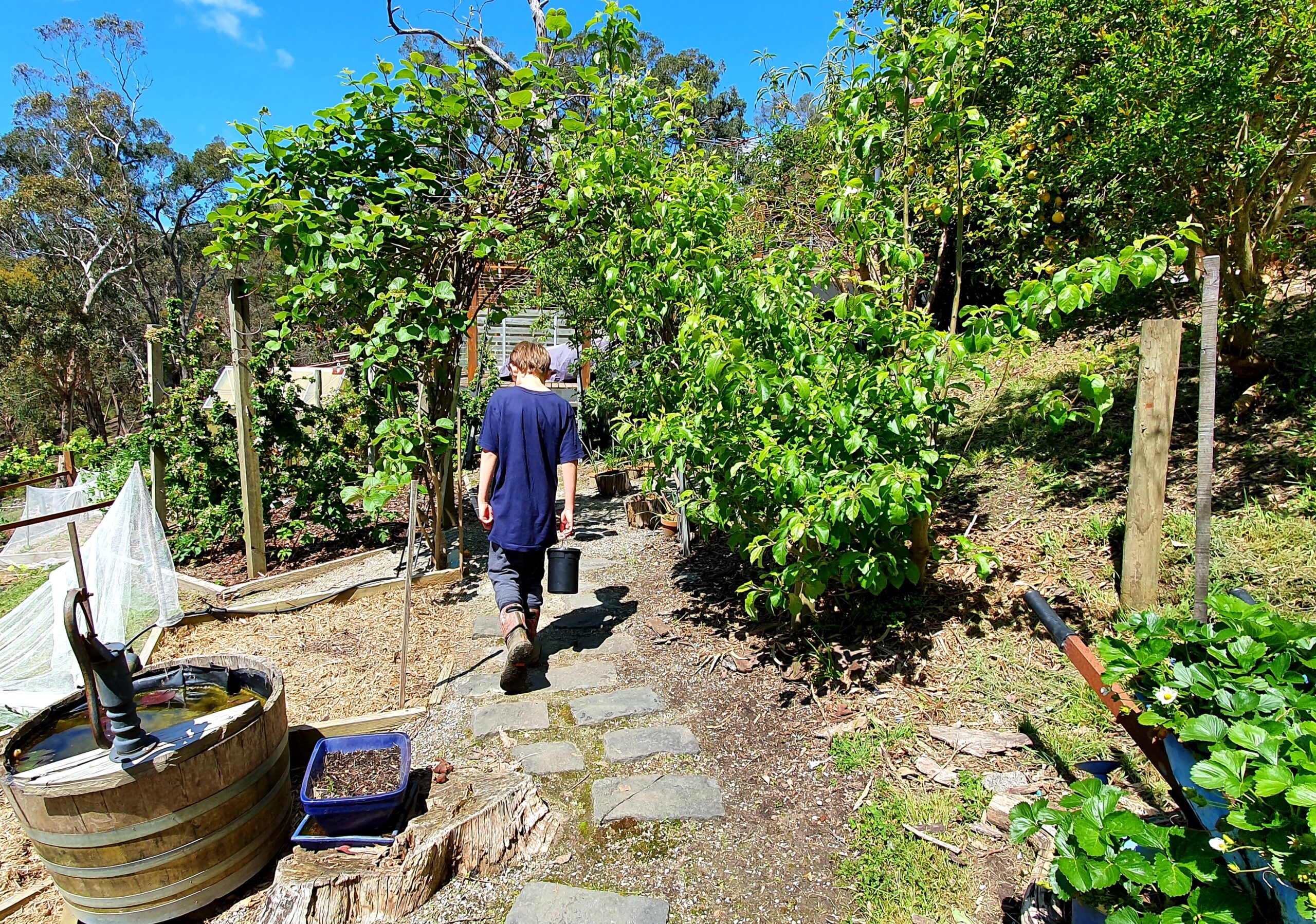
Feeding the system 🙂
Nothing Left for the Landfills
By feeding their food waste to the HomeBiogas system, the family see firsthand that by diverting it from landfills it can become a useful product. Whether it be by putting waste into the compost, feeding it to the chickens or putting it into the HomeBiogas system, Rachel is happy that her kids understand the impact of the waste they create.
Between their chickens, compost and worm farm, the Lowes were initially concerned that they Between their chickens, compost and worm farm, the Lowes were initially concerned that they might not have enough food waste leftover to put into their HomeBiogas system. They were pleased to learn that their HomeBiogas happily accepts things like old bread and meal scraps with leftover meat and sauces that otherwise would have gone to the landfill.
Completing the Cycle with HomeBiogas
Rachel loves preserving the food that they grow when there is seasonal excess. She explained that the process of canning food requires gas and since there is no gas connection where she lives, in the past she had to rely on a small gas cylinder camping stove. Now she uses their HomeBiogas stove, which is ‘taking pride of place’ in their outdoor kitchen, for the preservation process
During the winter months, when it’s very cold in the Dandenong Ranges, the Lowe Family routinely cooks on top of their wood stove. In the summertime they switch to their HomeBiogas stove, which Rachel says complements their wood stove perfectly. While they also enjoy using their solar oven during the summer, the solar oven provides low and slow cooking and takes time. Whilst their HomeBiogas stove provides an instantaneous flame ideal for frying, canning and boiling the kettle for a cuppa (tea!).
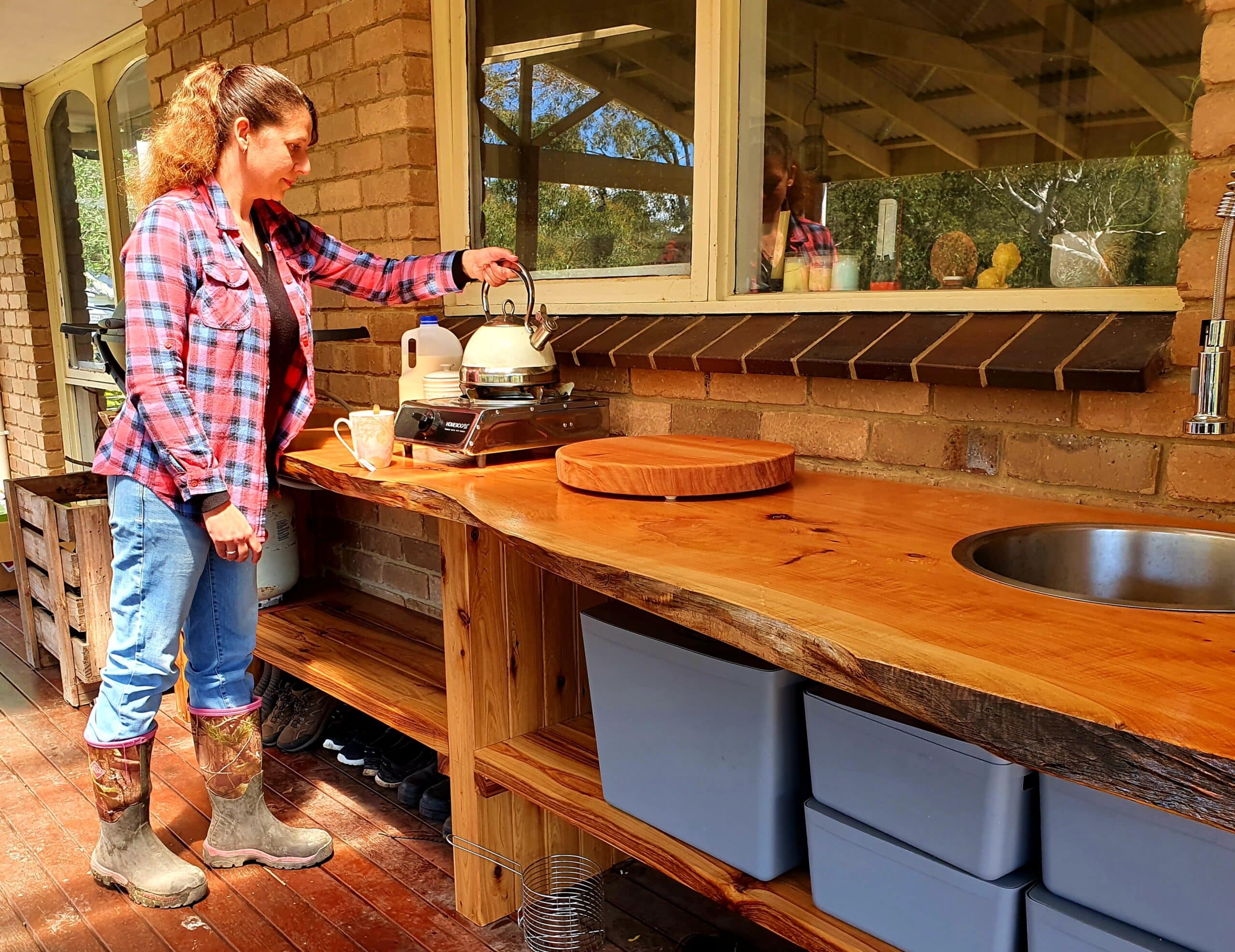
Ready to Join the Community?
Feeling inspired by the Lowe Family? So are we! Whether it be with friends, family or a larger community, HomeBiogas systems are enabling people all over the world to lead more sustainable and self-sufficient lives. Join the world-wide HomeBiogas community and start producing and using biogas at home with a HomeBiogas system.

